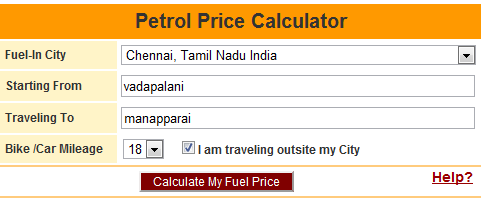Blog Archives
Corruption And Eleven Day Test Matches
Saeed Naqvi
22 November 2010
 Three batsmen at separate test venues on the same day score a triple hundred, a double century and a century. Captain M.S. Dhoni throws up his hands: “We will need eleven days of play continuously to obtain a result”. A spinner hits two hundreds in a row.
Three batsmen at separate test venues on the same day score a triple hundred, a double century and a century. Captain M.S. Dhoni throws up his hands: “We will need eleven days of play continuously to obtain a result”. A spinner hits two hundreds in a row.
What does all of this have to do with 2G Spectrum, Adarsh, CWG? A great deal.
Pundits say Chanakya’s Arthasastra refers to “utkot” which means bribe, something that was fairly common for “rajkramcharis” or state officials to accept.
The British used the caste hierarchy to minimize corruption at the lower level bureaucracy. The ICS steel frame kept order at the top. It was, for instance, not uncommon for a Saiyyid from the landed gentry to monitor the excise department in a district where poppy cultivation was extensive. Genteel upbringing, it was assumed, would create an automatic distance between the excise official and the potential bribe giver.
Word “sharafat” was at a premium. Unfortunately, there is no exact English translation for that word. “Nobility of character” minus the class connotation and “honesty” do approximate to “sharafat”.
There was sufficient corruption even in 1950 to inspire Josh Malihabadi to write his poem “Rishwat Khori” or “bribery”. Josh’s satire is directed at traders and businessmen who had “fattened” themselves in cahoots with the corrupt instruments of the state:
“Tond walon ki to ho teemardari
Wah, wah!
Aur hum chaata karein imandari
Wah, whah?”
(The fat bellied and the corrupt, their cups full, are pampered;
While we lick the sweetener of honesty.)
Rising prices also underpinned corruption. Witness Josh’s punchline:
“Hum agar rishwat nahin lenge to phir khaen ge kya”
(How will we feed ourselves without taking bribes.)
The corruption that disturbed Josh was largely a function of a sudden breakdown of the feudal order. Declining aristocrats were overnight reduced to penury. Middlemen turned up to pick up the heirlooms at throwaway prices. Patwari upwards, everyone in the revenue and land departments got into the act of transferring land to the “investor” or “Lala” at fictitious prices. The upheaval of partition followed by zamindari abolition brought in its wake a variety corruption.
From 1952 onwards, demands of electoral politics opened up another channel. Arrange for jeeps and country liquor for four “bastis” (colonies) of low caste voters. If the candidate wins, turn up at his MLA quarters in Lucknow for a canal building contract. This is the tiniest example.
There had always been a nexus between the Congress party and big business. After all, Mahatma Gandhi’s Ashram at Sevagram was financed by Jamnalal Bajaj; Gandhiji was assassinated in Birla House, New Delhi. Members of the Union cabinet like Satyanarain Sinha never disguised their loyalty to the Birlas.
The nexus between the party and sources of funding was monitored by individuals of integrity: Rafi Ahmad Kidwai, C.B. Gupta, Atulya Ghosh, L.N. Mishra, Rajni Patel (the last named with a caveat). It has always bothered me that Sitaram Kesari, remained Treasurer of the party for nearly two decades without a single allegation of corruption being made against him. But the manner in which he was dismissed confirmed that in Congress culture considerations of caste and power would trump financial honesty.
The system expanded where politicians with less than few thousand crores began to suffer from an acute inferiority complex. Why can’t the finances of all these fat cats be investigated? Yes, bureaucrats, industrialists, journalists, everybody.
By the time the post Cold War economic liberalization was upon us, ancient wisdom had been made to stand on its head. We had been taught: “The purpose of life is the pursuit of happiness”. Rampaging capitalism altered the basic lesson: “the purpose of life is the accumulation of wealth”.
The balance between Lakshmi and Sarawati, the basic Indian equilibrium, has been tilted obscenely in favour of wealth. It is this culture of grab, grab, grab of which 2G Spectrum, CWG, Adarsh are only the latest examples.
Avarice and greed were values for Henry Ford when he advised: “Buy when there is blood on the streets”. The theology had currency until Enronn, Fannie Mae, Freddie Max, Lehman Brothers, AIG have cumulatively brought down the global economy to a point where even a nervous Economist is editorially advising us not to lose “confidence in capitalism”. The guiding theology of our times is being re examined.
Pitches are “guaranteed” for matches to last five days so that billions in TV ads (never mind the empty stands) are not lost just in case a fast track or a turning wicket terminates a test match in three days! This grab, grab application on cricket has denied it of the game’s poetry encapsulated in Neville Cardus’s description of Hammond driving between cover and extra cover.



